why do kittens suckle
Kittens are adorable little bundles of fur and energy, and one of the most endearing behaviors they demonstrate is suckling. Suckling is a natural behavior that serves as a source of comfort and nourishment for kittens. Whether it’s done on a mother cat’s nipples or on an object, it’s a behavior that can be both fascinating and endearing. In this article, we’ll explore why kittens suckle and what you can do to help them out with this behavior.
Exploring the Physiological Reasons Why Kittens Suckle
Kittens suckle for a variety of physiological reasons. Suckling is a behavior that helps kittens to obtain food, comfort, and warmth. This behavior is instinctual and is seen in the majority of newborn kittens.
When newborn kittens are born, they are unable to see or walk. This means that they must rely on their mother’s body to provide them with warmth and nutrients. Suckling is the primary way in which kittens receive nourishment from their mother’s milk.
Suckling also helps kittens to develop a healthy bond with their mother. The act of suckling releases hormones, such as oxytocin, which helps to strengthen the bond between mother and kitten. This bond is important, as it helps to ensure that the kitten is kept safe and cared for.
In addition to receiving nourishment and forming a bond with their mother, kittens also suckle to obtain comfort. Suckling is a calming behavior that helps kittens to relax and feel secure. This is especially important in the first few weeks after birth, as newborn kittens are highly vulnerable and need extra care and comfort.
Finally, suckling is a natural behavior that helps kittens to become familiar with their environment. Kittens use their sense of taste and smell to explore their surroundings and learn what is safe and what is not.
In summary, kittens suckle for a variety of physiological reasons. Suckling helps kittens to obtain food, comfort, and warmth, as well as to form a bond with their mother and explore their environment. This behavior is an important part of kitten development and should be encouraged in order for kittens to grow and thrive.
Understanding the Nutritional Needs for Kittens and How Suckling Fulfills These Needs
Kittens require special care and attention to ensure that they grow into healthy and happy cats. One of the most important aspects of their development is nutrition. Kittens require a diet that is high in protein, fat, and essential nutrients to help them grow and develop properly. In the wild, kittens would get their nutrition from suckling their mother’s milk, but for kittens that don’t have access to their mother, there are other options available.
When kittens are first born, they need to consume their mother’s colostrum, a highly nutritious form of milk that is filled with antibodies and nutrients to help them build their immune systems. After that, kittens need to consume a diet high in protein, fat, and other essential nutrients to help them grow. Suckling is the best way for kittens to get the nutrition they need, as they are able to digest it quickly and efficiently, allowing them to gain the most benefit from the food.
Suckling provides kittens with the calories, protein, and fat they need to grow. It is also an important source of vitamins and minerals. For example, kittens get the essential fatty acids DHA and ARA from suckling, which are important for brain and visual development. They also get essential vitamins and minerals such as calcium, phosphorus, and magnesium.
Suckling is also beneficial for kittens in terms of hydration. Kittens are unable to regulate their body temperature until they are about two weeks old. Suckling helps ensure that kittens stay hydrated and helps maintain their body temperature. Additionally, suckling helps kittens practice their nursing skills, which are important for their development.
Suckling is a natural source of nutrition for kittens and should not be overlooked. It is important to provide kittens with the right food to make sure they get the nutrition they need to grow and develop properly. It is also important to provide kittens with plenty of clean water and to monitor their health regularly. By providing kittens with the proper nutrition, they can grow into healthy and happy cats.
Investigating the Bonding Role of Kitten Suckling and How it Benefits Development
The bond between a mother and her kitten is one that is nurtured in the early stages of life and plays a vital role in the development of the animal. Kitten suckling, or nursing, is a behavior that helps to build this bond, and it is essential for the healthy growth and development of the kitten. In this article, we will explore the importance of kitten suckling and how it benefits development.
Kitten suckling is the act of a kitten nursing from its mother. This behavior is instinctual, and it serves several important purposes. First, it helps the kitten develop a strong bond with its mother. This bond is important for the kitten to feel secure and to learn appropriate social behaviors. Secondly, kitten suckling provides the kitten with essential nutrients and antibodies that are critical for its growth and development.
The act of suckling also stimulates the growth of the kitten’s brain. Studies have shown that kittens who are frequently nursed demonstrate higher levels of intelligence and problem-solving skills than those who are not. In addition, the act of suckling helps the kitten to regulate its body temperature and to learn how to regulate its breathing rate. Finally, the act of suckling helps to promote a sense of security and comfort for the kitten, which is essential for its emotional wellbeing.
In conclusion, kitten suckling plays an important role in the development of the animal. It helps to build a strong bond between the mother and the kitten, provides essential nutrients and antibodies for growth, and promotes a sense of security and comfort. Therefore, it is essential for the health and wellbeing of the kitten that it is allowed to nurse whenever necessary.
Examining the Psychological Benefits of Kitten Suckling for Both the Kitten and its Caretaker
Kitten suckling is an increasingly popular behavior among many people who have adopted cats as pets. It may sound odd at first, but this behavior has been documented for centuries, and has been seen as both a calming and nurturing experience for both the kitten and its caretaker. This article will explore the psychological benefits of kitten suckling for both the kitten and its caretaker.
Kitten suckling is a process in which a kitten will instinctively suckle on its caretaker, typically in response to being handled and petted. This behavior is thought to provide a sense of comfort and security for both the kitten and its caretaker, as it mimics the experience of nursing. For the caretaker, kitten suckling can be seen as a form of affection and can provide psychological benefits such as reduced stress and an improved mood.
For the kitten, suckling can provide a sense of safety, comfort, and security. This behavior has been observed in kittens as young as four weeks old, and can provide psychological benefits such as improved attachment to its caretaker, reduced levels of stress and anxiety, and improved overall health and well-being.
In addition to the psychological benefits of kitten suckling, there are also physical benefits. For kittens, suckling can help to regulate their body temperature, as the warmth from their caretaker’s body helps to keep them warm. It can also help to strengthen their immune systems, as the antibodies present in their caretaker’s saliva help to protect them from disease.
Kitten suckling is a natural behavior that can be beneficial for both the kitten and its caretaker. For the caretaker, it can serve as a form of affection and stress relief, while for the kitten, it can provide a sense of safety and security. Additionally, there are physical benefits as well, such as improved body temperature regulation and a stronger immune system. Therefore, kitten suckling can be a beneficial experience for both the kitten and its caretaker.
Conclusion
Kittens suckle for nourishment, comfort, and interaction. Nursing is an important part of a kitten’s development as it helps them gain the energy and nutrition they need to grow and thrive. It also provides a comforting source of warmth and security while establishing a strong bond between the kitten and its mother. Nursing is also a form of communication between kittens and their mothers, as it encourages interaction and allows the mother cat to show her affection for her kittens.
Kittens are adorable and endearing, but why do they suckle? This is a common question asked by many people. Suckling in kittens is a normal behavior that is usually observed in the first few weeks of life.
Suckling is an instinctive behavior that kittens learn as soon as they are born. Female cats instinctively lick their kittens in order to stimulate the production of milk, and the kittens in turn suckle as a way to feed on the cat’s milk. Kittens also take in a good deal of the mother’s scent and possibly her antibodies when they feed. This helps to keep the kittens well-nourished and strong throughout their early development.
Suckling is not only important for kittens to receive their much needed nourishment in those early days, but it is also beneficial for the mother cat. The suckling action of the kittens stimulates the mother’s uterus to contract, which encourages the uterus to be cleaned of any bacteria or other materials that could be harmful to the kittens. This helps to ensure that the kittens are kept safe and healthy.
Kittens suckle for some time after they are weaned, up until they are roughly eight weeks of age. This behavior is important as it helps to keep them emotionally tied to the mother cat and helps them recognize her as the source of comfort and security. As kittens grow older, they will suckle less and less until they become too big to do so.
Overall, suckling is an instinctive behavior that helps kittens to feed on their mother’s milk, keep them safe and healthy, and builds a stronger bond between the mother and kittens.


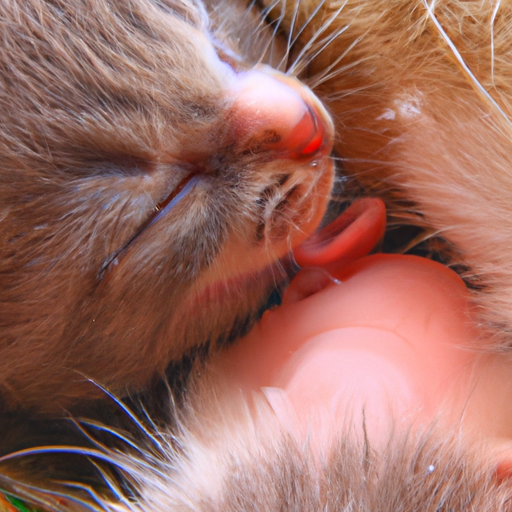
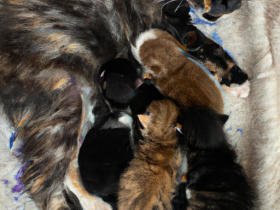
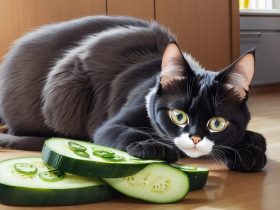
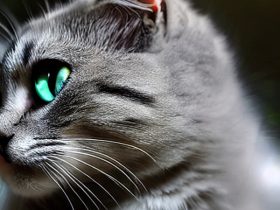
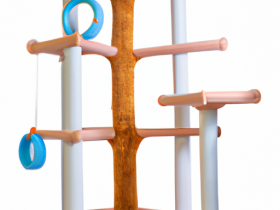
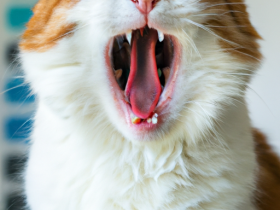
Leave a Reply
View Comments